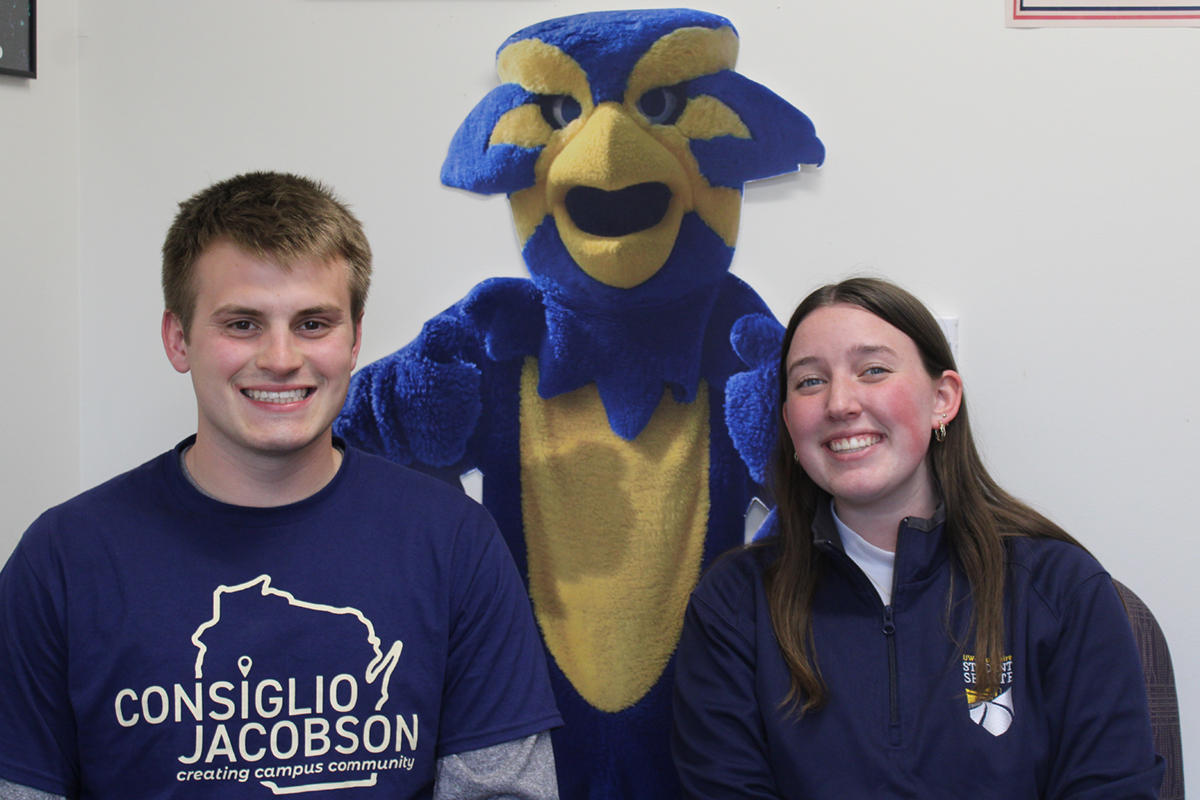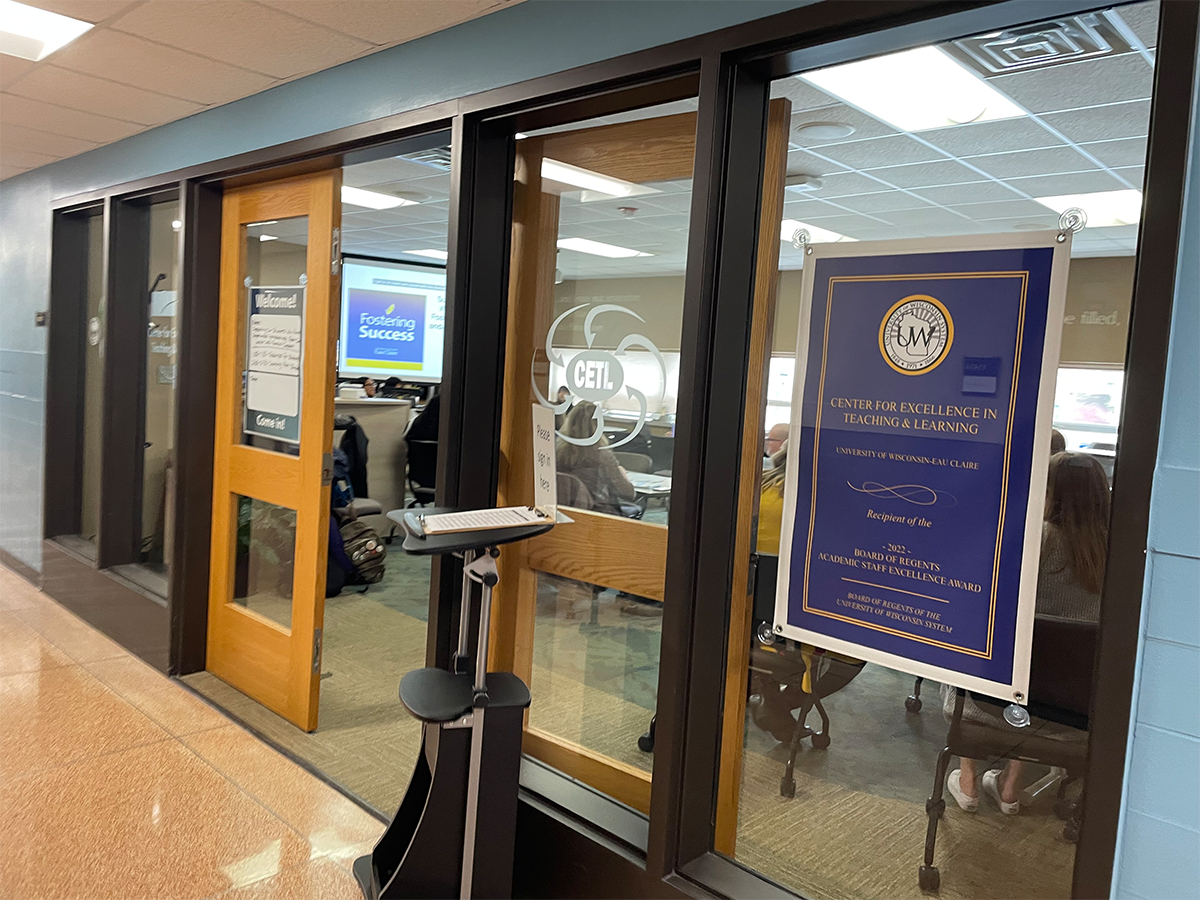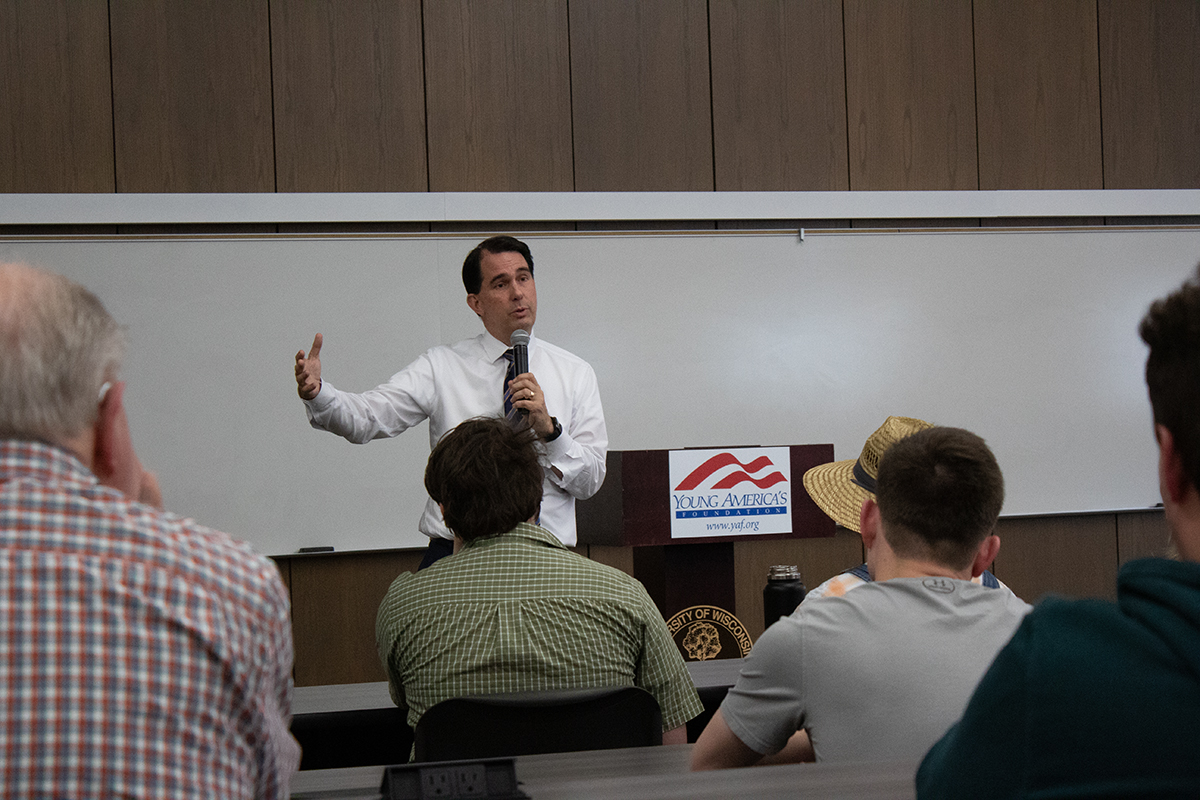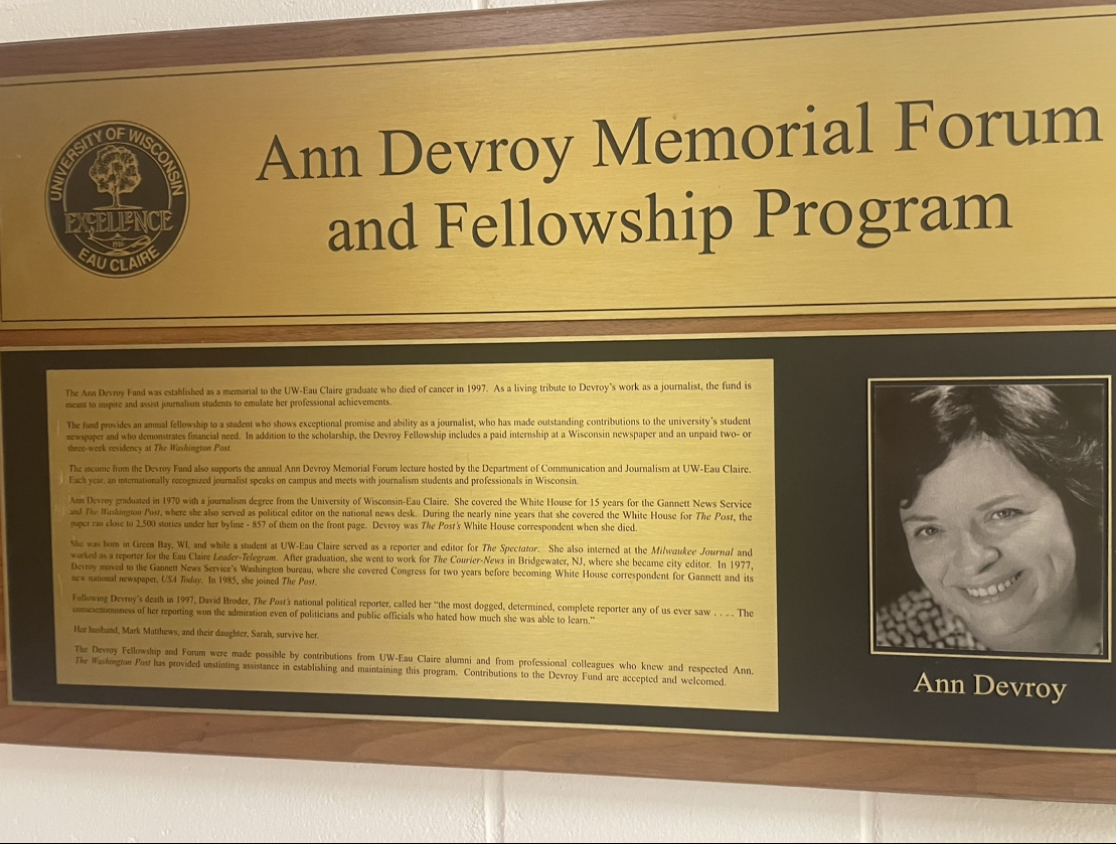Born into a family of doctors, Ayad Akhtar was convinced at a young age that he would follow his parents’ example and pursue the medical field to become a neurosurgeon.
In high school he devoted himself to the sciences until his junior year when he was forced to take an English class. His teacher assigned “The Tunnel,” a short story by Friedrich Durren, and Akhtar dropped everything at that moment to pursue a career in writing.
“Inside of 15 seconds I knew I was going to be a writer,” Akhtar said. “I had this experience where something in my mind had cleared. I had never had that kind of clarity before and it was my first experience of that it was so potent and so real. All of a sudden there was no more worthwhile thing to do in my life.”
Akhtar held a discussion on his first novel “American Dervish” in Schofield Auditorium to a crowd of about 80 people last Thursday as part of this year’s Chippewa Valley Book Festival.
“American Dervish” tells the story of a 10-year-old Pakistani-American boy’s difficulties as a Muslim growing up in the ’80s, and is loosely based on Akhtar’s own experiences as a child growing up in suburban Milwaukee.
“I wanted the book to have a register of intimacy,” Akhtar said. “I wanted the reader to feel that they were reading something that is true.”
Akhtar started the presentation by reading excerpts from the novel, complete with Pakistani voice inflections to represent the young boy’s parents in the novel to the delight of the audience.
Afterward, he answered questions about his life, the novel and his writing processes.
Elina Laine, a senior at Eau Claire, said Akhtar’s sense of connectedness with the audience and ideas about writing and religion are extremely informative.
“I like the connection between multicultural American culture and connecting that to literature,” Laine said. “He’s connecting theory to reality.”
Senior Caleb Larson said he found Akhtar’s views on religion to be very moving and informative.
“For me, it was inspiring in a way because of how knowledgeable he was about his religion,” Larson said.
Fully aware of the negative ways in which some Americans view Muslims, Akhtar said he seeks to use the novel to distort that convention.
As someone who defines himself as “culturally Muslim,” Akhtar wrote the novel to illustrate what he calls the “American religious experience.”
Steve Fink, assistant professor of religious studies at Eau Claire, said he respects Akhtar’s unique perspective on misconceptions of Muslims in America and admires the way Akhtar has opened up dialogue on Muslims in America.
“There’s this perception that all Muslims do this, believe that, and I think his book blows that apart and says, ‘no, there’s so many different layers to it,’” Fink said. “I just don’t see many other writers describing the American Muslim experience in a novel form like this. It’s a great contribution.”
For Akhtar, productive work didn’t come immediately after making the decision to become a writer.
Though he has many titles now including director, screenwriter, playwright and novelist, it wasn’t until his 30s that he found his voice in his work.
“I had been running away from who I was,” Akhtar said. “I was trying to be somebody I was not without even realizing it, and the moment I realized it I also understood that all I had to do was to turn and look at what I was avoiding.
“And the second I did that there was an explosion of creativity.”





